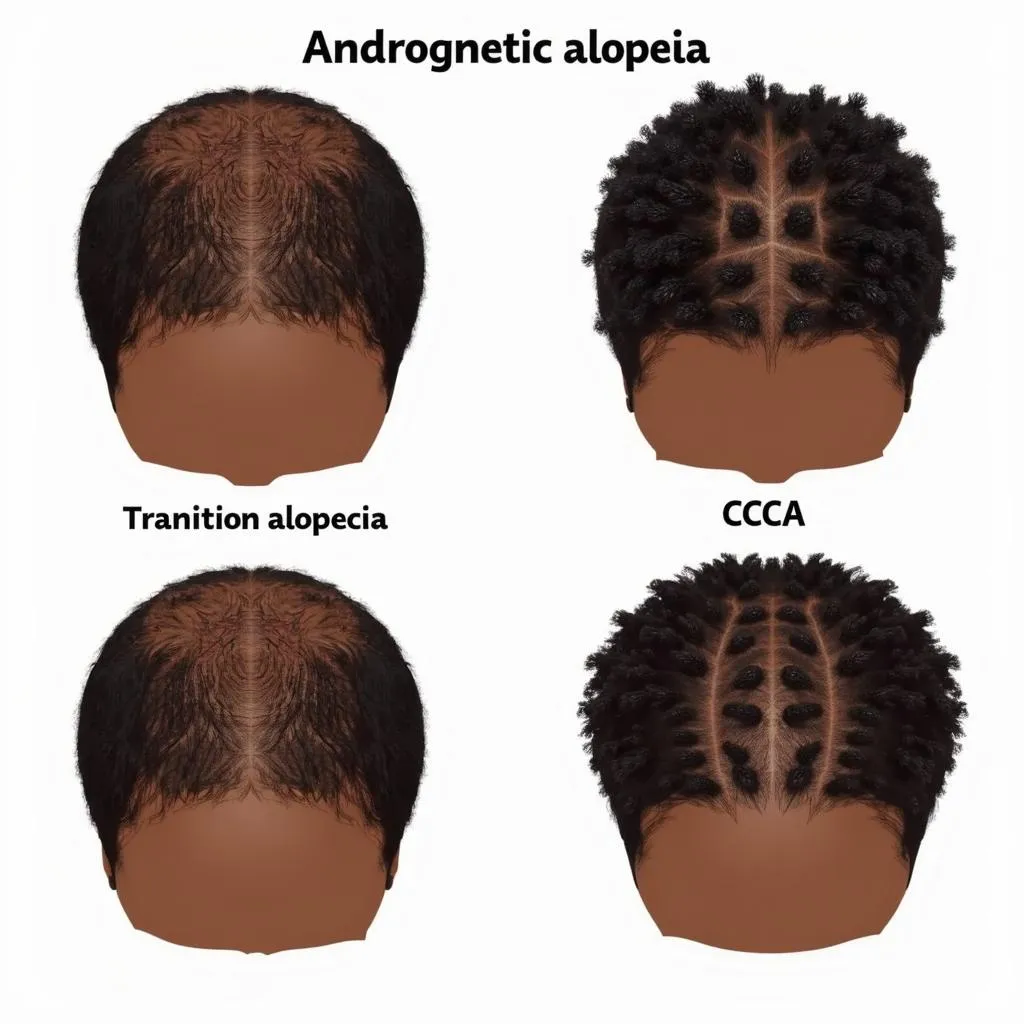Finding an African American Hair Loss Specialist Near Me
Dealing with hair loss can be a frustrating and emotional experience for anyone. If you’re an African American seeking help, finding a specialist who understands the unique characteristics of your hair is crucial. This guide is designed to help you navigate this process and connect with the right professional for your needs.
Let’s face it, not all hair is created equal. African American hair, with its beautiful coils and curls, often requires specialized care and treatment. Factors like genetics, styling practices, and certain medical conditions can contribute to hair loss in people of African descent.
Understanding Hair Loss in African Americans
Before diving into the search for a specialist, it’s important to have a basic understanding of the common types of hair loss affecting African Americans:
- Traction Alopecia: This is perhaps the most prevalent form of hair loss within the African American community. It’s caused by constant pulling and tension on the hair follicles, often due to tight hairstyles like braids, weaves, or extensions.
- Central Centrifugal Cicatricial Alopecia (CCCA): This type of hair loss starts at the crown of the head and spreads outwards. While the exact causes are unknown, it’s believed to be linked to factors like genetics, inflammation, and certain hairstyles.
- Seborrheic Dermatitis: This common skin condition can also affect the scalp, leading to itchy, flaky skin and hair loss.
- Androgenetic Alopecia: Also known as male or female pattern baldness, this hereditary condition can affect both men and women.
 Different Types of Hair Loss
Different Types of Hair Loss
The Importance of Choosing the Right Specialist
Seeking help from a qualified professional is vital for addressing hair loss effectively. Here’s why finding an African American hair loss specialist near you can make a significant difference:
- Cultural Understanding: They possess a deep understanding of the cultural significance of hair within the African American community and can provide sensitive and relevant advice.
- Hair Expertise: They are well-versed in the unique characteristics and needs of African American hair, from its texture and curl pattern to its susceptibility to certain conditions.
- Tailored Treatment Plans: They can create personalized treatment plans that consider your hair type, lifestyle, and desired outcomes.
How to Find an African American Hair Loss Specialist Near You
- Ask for Referrals: Start by asking your primary care physician, dermatologist, or even your stylist for recommendations.
- Check Online Directories: Utilize online directories specifically designed for finding dermatologists or hair loss specialists. Many allow you to filter your search by location, specialty, and ethnicity.
- Consult Professional Organizations: The American Academy of Dermatology (AAD) and the National Medical Association (NMA) can provide lists of board-certified dermatologists in your area.
- Read Reviews and Testimonials: Once you’ve compiled a list of potential specialists, take the time to read online reviews and testimonials from other patients.
 Patient and Specialist Consultation
Patient and Specialist Consultation
What to Expect During Your Consultation
During your initial consultation, the specialist will likely:
- Take Your Medical History: Be prepared to discuss your hair loss history, family history of hair loss, any medical conditions, and medications you’re currently taking.
- Examine Your Scalp: The specialist will examine your scalp closely to determine the underlying cause of your hair loss.
- Discuss Treatment Options: Based on their assessment, they’ll recommend a personalized treatment plan, which may include medications, therapies, or procedures.
Remember to ask questions, voice your concerns, and communicate your expectations clearly. Finding the right African American hair transplant specialist is a journey, but with the right information and resources, you can take a proactive step toward restoring your hair and your confidence.
Frequently Asked Questions
1. Is all hair loss preventable?
While not all types of hair loss are entirely preventable, early detection and treatment can significantly improve outcomes and slow down or halt the progression.
2. Are hair loss treatments covered by insurance?
Insurance coverage for hair loss treatment varies greatly depending on your specific plan and the underlying cause of your hair loss. It’s essential to contact your insurance provider to understand your coverage.
3. Can I continue wearing braids or weaves if I’m experiencing hair loss?
It’s generally recommended to avoid tight hairstyles if you’re concerned about hair loss, especially traction alopecia. Your specialist can advise you on scalp-friendly hairstyles and hair care practices.
4. How long does it take to see results from hair loss treatment?
The timeframe for seeing results varies depending on the type of hair loss and the chosen treatment approach. Patience is key, and consistency with the recommended treatment plan is crucial.
5. Are there natural remedies for hair loss?
While some natural remedies may promote hair growth, it’s important to consult with a qualified healthcare professional before trying any new treatments, as some may interfere with existing medications or have adverse effects.
For personalized advice and support in your journey to address hair loss, reach out to an African American dermatologist San Antonio for expert care and guidance. Don’t hesitate to contact us at +255768904061, email us at kaka.mag@gmail.com, or visit our office in Mbarali DC Mawindi, Kangaga, Tanzania. Our dedicated team is available 24/7 to assist you.

